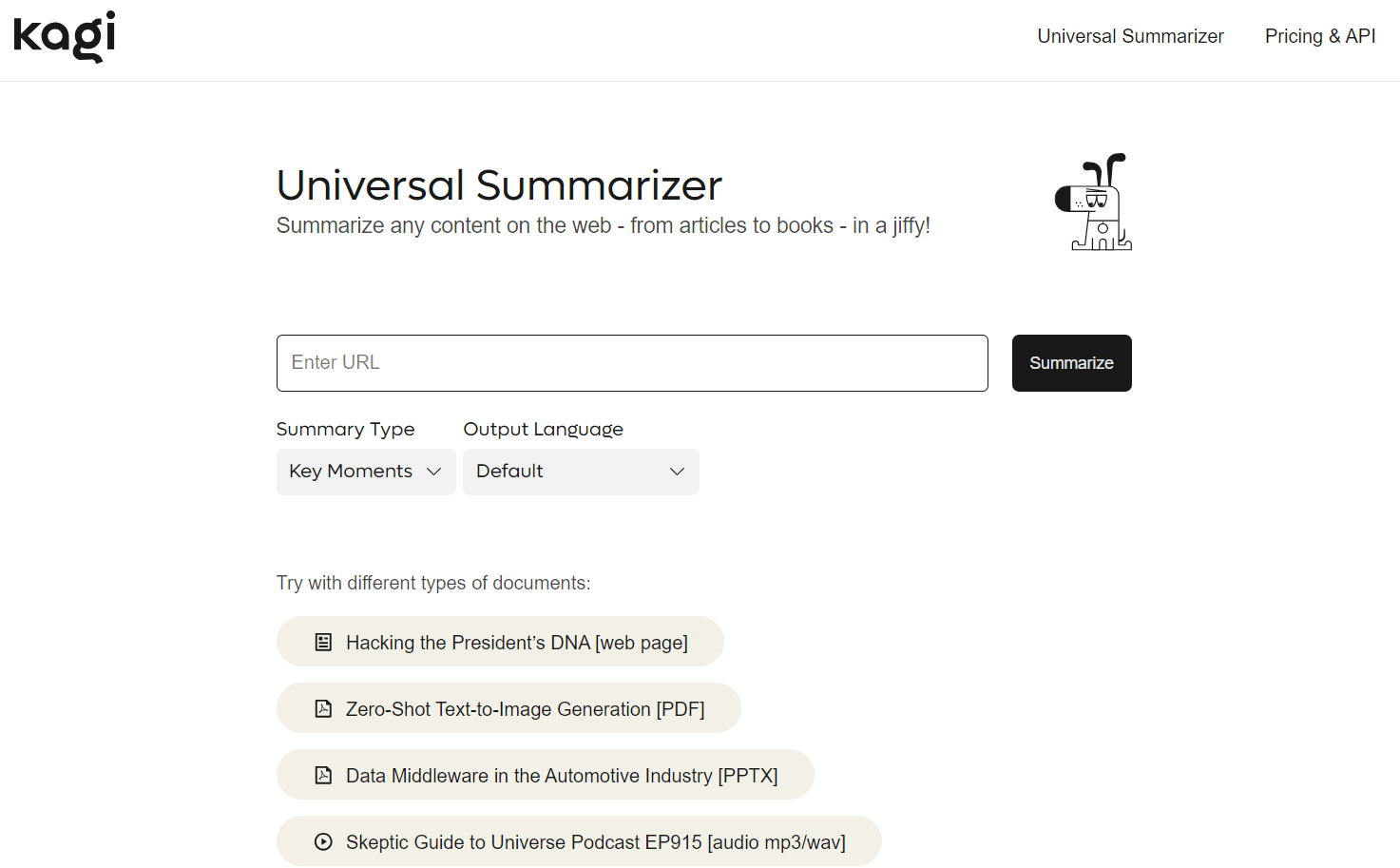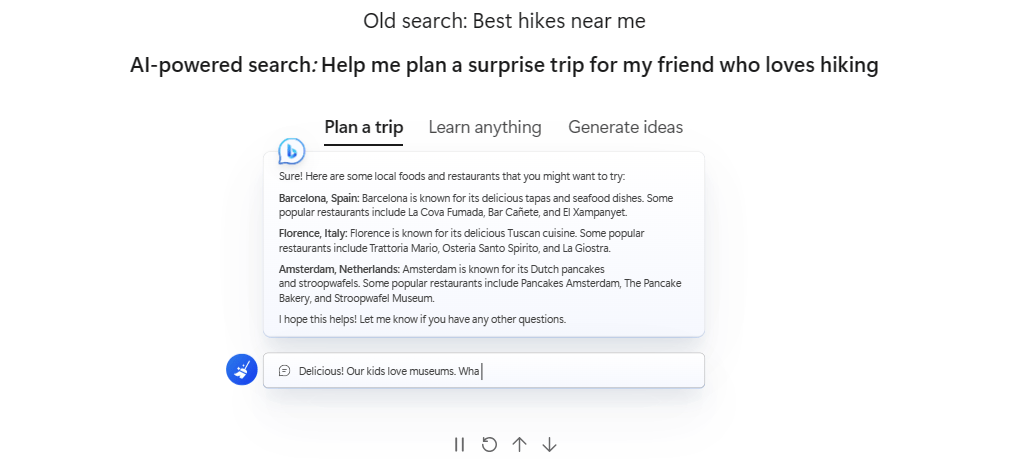AI tools such as ChatGPT and others can help you make better use of your time and come up with new ideas. In this part of our article series, I will show you which tasks these tools can and cannot perform.
One of the most interesting features of the new generation of AI tools is their flexibility. In its basic form, an offering like ChatGPT only has one input line for the chat and nothing else. On the one hand, this is a good thing, as it allows you to customise how you use the AI and what results it delivers.
On the other hand, this makes it harder to understand the potential of these services. I’ve been using ChatGPT and competitors like Claude for almost a year now and still keep discovering new ways to use them.
Content and AI: the basics
Jan offers you an introduction to working with AI tools, including for online marketing and content creation, in his post Content & AI Basics.
One basic idea is to view a tool like ChatGPT as a helper that is available on demand and is always maximally motivated, but at the same time needs precise guidance. In the following, I will give you some examples of how I use AI tools myself and hope that they will serve as inspiration for you.
Summarise articles and other media
Part of my job is to keep up to date. You will feel the same way. There are also topics that I am interested in privately. One challenge at this point is to use my limited time each day as wisely as possible. There is one difficulty in particular: many content creators and websites have now learnt to make their content look as interesting as possible.
Headlines, YouTube titles, thumbnails: They are all optimised to make us curious. But what’s really behind them? Too often I have spent time with a piece of content only to realise afterwards that the title promised more than the content could deliver.
One of the tools I often use for this task is the Universal Summariser from the paid search engine Kagi. It not only summarises articles for me, but also PDFs, YouTube videos or entire podcast episodes – in just a few seconds.

I already understand better what is hidden behind a mysterious headline or whether the content is interesting and useful for me at all. The summary is often enough for me, as many articles these days are artificially stretched to make them appear more valuable to search engines. The actually important, current fact is then buried under all kinds of background stories and marginal information.
Such a function can be implemented in a similar way with tools such as ChatGPT or Claude. In their chat interface, this is a little more complicated than with the Universal Summariser, but it is more flexible. It certainly works better if you set up your own application via the respective API or use an alternative web interface such as TypingMind, which gives you more options.
Analyse documents and answer questions
An interesting bonus, especially for longer documents: You can ask the Universal Summariser more detailed questions. I have used this, among other things, to find out in advance whether a certain piece of information can be found in a PDF or not. In one case, this helped me a lot to extract certain information from a company’s annual report (or to determine that certain data could not be found in it).
Claude is also ideal for this thanks to its large context window of around 100,000 tokens. For example, I uploaded the current draft of the cannabis law for Germany for an article research and was able to obtain various analyses. For example, Claude gave me a list of all the fines mentioned in the law – each with a reference to the paragraph so that I could check it quickly.
Content marketing for advanced users: The 6 most important levers
Discover how to optimize your content marketing to reach the right audience, build trust, and achieve long-term success.
Translate statements that are difficult to understand into simple language
In my experience, translations are a good use case for these tools. And I don’t just mean translating an English text into German. There were already useful tools for this, such as DeepL.
You can also customise the language level. This is very useful for turning official German into a generally understandable text, for example. Or you can use it to have a topic explained to you that goes beyond your own specialist knowledge. You can think of it as being similar to the well-known subreddit “Explain Like I’m 5”, but automated.
Or you can use it to find out how you can explain a topic that you are particularly well versed in to a layperson. Or you have a draft of an angry email in front of you and ask your AI assistant to turn it into a polite and professional message.
Subscribe to the Raidboxes newsletter!
We share the latest WordPress insights, business tips, and more with you once a month.
"*" indicates required fields
Explain terms and concepts in the exchange
It is important to take the “chat” part of “ChatGPT” seriously. Because one of the strengths of these tools is that you can enter into a dialogue with them. A simple Google search, for example, definitely can’t do that. ChatGPT and others react flexibly to your questions, wishes and requirements and adapt their response accordingly.
For me, this can sometimes be a bit like getting lost in Wikipedia and jumping from one article to the next to understand a topic – but much more flexible and efficient.
By the way, you can of course give ChatGPT a Wikipedia article and then ask questions about the content, have the terms and concepts explained and much more. I find this very helpful for finding access to a topic. After all, Wikipedia is often not particularly beginner-friendly.
As mentioned in the first part of the series, you should always check important facts and figures and not simply accept them. Even Wikipedia founder Jimmy Wales likes to emphasise that you shouldn’t believe his online encyclopaedia, but should only use it as a starting point for your own research. This applies even more to the results of ChatGPT & Co. which may also be incorrect in terms of content.
At the same time, the providers of such tools are of course aware of the weaknesses of their offerings and are developing them further. Bing Chat, for example, is based on the same technologies as ChatGPT, but uses Bing’s search results as a basis. Bing Chat’s answers are therefore based on what it has found online and it gives you these links as sources.

Or Google’s AI assistant Bard now has a button to back up its statements with search hits or to make it clear when there are no sources. Even so, these tools are far from perfect. But development is definitely moving in the right direction.
Provide ideas for topics and keywords
These tools are also ideal for stepping out of my own creative bubble. When I’m thinking about topics and keywords, I can use one of these tools to exchange ideas.
Here too, you can ensure that the answers are ideally suited to your situation and question. To do this, however, you must provide ChatGPT with the necessary information. If you only ask a general question without any further instructions or background information, you will only receive a general answer.
In the next part of this article series, I will go into more detail about how I use ChatGPT, Claude and others to create texts. There I will also go into more detail about how the prompt influences the response.
Instructions for keyword research
Are you new to the important topic of keywords and SEO (search engine optimization)? Then read our step-by-step guide to keyword research for SEO success.
Brainstorming for projects, products or business concepts
Such tools are just as helpful for moments when you are thinking about your offers and products. The AI assistants help you when you want to get rid of some initial ideas and thoughts because you might want to develop something new from them. Or if you have the feeling that you need a neutral outside perspective.
ChatGPT does not replace interpersonal contact. It is still enormously valuable to talk to friends, colleagues, coaches and others. Rather, these AI helpers are another tool that can support you in such moments. They don’t want to sell you anything. They have no personal opinion. They have no history with you to influence their answers. This can be a strength and definitely a helpful addition.
Sorting and structuring information
ChatGPT and others can also be amazingly good at finding a meaningful structure for data. For example, I can explain a topic idea to these tools and they help me with the organisation. Or I give them unsorted notes and they find helpful categories to organise them more clearly. This can also help you to prioritise tasks.
Or think of the tiresome meeting minutes. Google Meet, Zoom and others can usually transcribe these days. But without further structuring, the result is pages and pages of text. It’s much more helpful if an AI tells you what the main points of the conversation were and can list who said what.
Outlook: Where the journey for assistants is heading
What still makes ChatGPT and the like cumbersome today are the intermediate steps that are always necessary. For example, if I want a German summary of an English-language article, I have to copy and paste the original text each time and explain the task with the corresponding prompt. In addition, every chat starts from scratch: ChatGPT, Claude, Bing Chat and others don’t get to know me. And they don’t learn from previous conversations in all versions either.
I see a lot of potential for the future here. A step that we can already see today: Integration into other services. Microsoft, for example, is adding “Copilot”, an assistant directly in the already familiar interface. A plugin like WP Wand complements it in the WordPress backend. There are many other possibilities for useful integrations here: I would like to have the content summaries mentioned above in the browser at the touch of a button. Or an AI assistant in the email inbox that goes far beyond the categories of Gmail and learns over time which types of messages and which topics are important.
Some of this can be implemented yourself if you have the resources to familiarise yourself with the APIs of the offers. Then you could automatically deliver the basic prompt for recurring tasks. Or background information about the company and its target groups is noted once and always supplied.
Another much-discussed point is the evolution of AI assistants into AI agents. The idea behind this is not just to ask questions and get answers, but to assign more complex tasks to an AI. After all, why should you spend your time finding the best deal on a new laptop when your AI agent could do it on its own? You would then provide this tool with the basic data and your requirements and it would start searching on its own and then provide you with the results with personalised recommendations. Or even more complex: book a holiday.
My conclusion on the possibilities of AI tools
After the initial enthusiasm about a new tool, a certain disillusionment often sets in as soon as you have explored its limits and realise that it cannot fulfil all your hopes and wishes: It cannot fulfil all hopes and wishes. ChatGPT and similar tools are certainly not the artificial geniuses they appear to be in some exuberant reports. They just have their problems in everyday life.
But various tools from this area have very quickly secured a permanent place for me. And when the Universal Summariser tells me within seconds what an hour-long YouTube video is all about, I still find it fascinating.
Your questions about AI tools
What questions do you have about the features or tools mentioned? Feel free to use the comment function. For more insights on WordPress, web design or online business, follow Raidboxes on Facebook or LinkedIn – or subscribe to our newsletter.

Leave a Reply